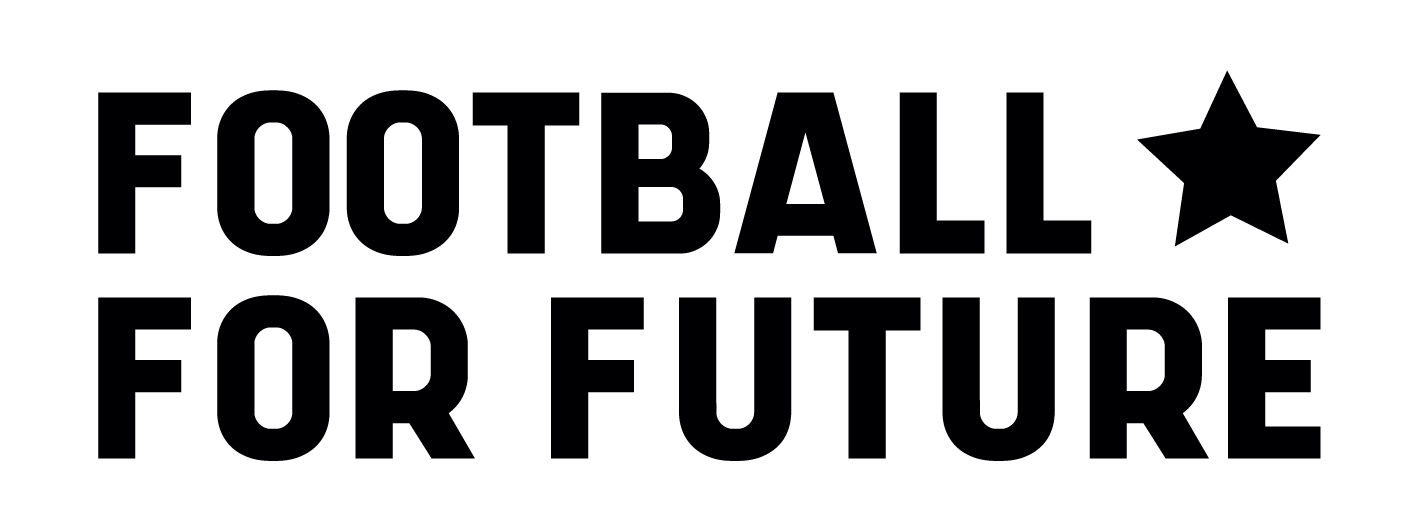New group asks government to build environmental sustainability into English football
Football For Future leads a group of organisations including Forest Green Rovers FC, Pledgeball and BASIS.
The fan-led review does not make any reference to environmental sustainability or climate change.
The government has now committed to publishing a white paper in the summer. This will be their plan for how to implement the 10 recommendations set out in the fan-led review.
A new group of organisations, led by Football For Future, are asking the government to incorporate environmental sustainability into the white paper.
League 1 football club Forest Green Rovers (verified by FIFA as “the world’s greenest football club”), charity Pledgeball, and non-profit BASIS (British Association for Sustainable Sport) are also part of the group.
Football For Future and other organisations working in English football are asking the government to apply the fan-led review’s recommendations to climate change, building them into the white paper.
The fan-led review references financial sustainability as “clearly the single most important factor” in the context of the challenges facing English football - but does not make any reference to environmental sustainability or climate change.
The link between financial sustainability and environmental sustainability is clear. Carlisle United were forced out of their stadium by Storm Desmond for seven weeks at a cost of almost £3million. The Cumbrian club’s chief executive has since become an advocate for climate action, recently quoting scientific studies that Desmond was 59% more likely to occur because of climate change.
Environmental sustainability also presents a great opportunity for English football to become financially sustainable. Clubs can make financial savings by eliminating energy inefficiencies and upgrading to environmentally sustainable infrastructure, whilst also exploring new sponsorship opportunities from partners keen to invest in the booming environmental sustainability sector.
English football is in need of support on its journey to become more environmentally sustainable. Clubs often want to improve their environmental performance, but feel they lack the knowledge, skills, and finance to do it.
Football For Future is leading the initial group of organisations working in English football. Other organisations taking part include the League 1 football club Forest Green Rovers (verified by FIFA as “the world’s greenest football club”), charity Pledgeball, and non-profit BASIS (British Association for Sustainable Sport).
We invite other organisations and fans to collaborate. Get in touch!
There is significant overlap between the argument to tackle climate change in English football and the government’s response to the fan-led review’s recommendations.
The fan-led review states EDI “should form a strong pillar of good corporate governance” and recommends that an independent football regulator regularly assesses clubs’ Equality, Diversity, and Inclusion (EDI) Action Plans. This recommendation could extend to environmental sustainability. Clubs could develop Environmental Sustainability Action Plans, and an independent football regulator could supervise and educate clubs on how to become more environmentally sustainable.
Incorporating environmental sustainability into the fan-led review next steps would also be in line with another of the fan-led review’s recommendations, “improving supporter engagement in the running of their clubs.” A recent survey of 1,400 football fans revealed over 90% agreed on the importance of protecting the environment and fighting climate change.
A new owners’ and directors’ test also has the chance to identify individuals with experience embedding environmental sustainability in organisational culture. A top-down approach could combat the risk climate change poses to English football, and meet the bottom-up efforts of club staff who are already concerned about climate change and tackling it in their day-to-day work.
Commenting, Football For Future Co-Director, Barney Weston, said: “We are calling on the government to consult the football and climate sector, to incorporate environmental sustainability into the fan-led review white paper - and support English football to become more environmentally sustainable.
In our experience - clubs often want to improve their environmental performance, but feel they lack the knowledge, skills, and finance to do it. This is the government’s chance to support them!
We invite other English football fans and organisations to collaborate with us to make this a reality. Contact us through our website!”
Commenting, Forest Green Rovers Chairman, Dale Vince, said: "This is an absolutely historic moment for football in our country, we‘re about to have a big reset of the ‘rules of the game’ - off the pitch - and not adding sustainable criteria now, given all the targets we have as a country and as a world and the clear need for more action from all sectors - is just the most massive open goal - about to be missed.
On top of this we know football is a powerful platform and influencer, even on this topic - our experience at FGR shows this. The environment has to be added to the white paper - it just has to be. Football is about to get a regulator, it has to regulate environmental performance alongside the other vital criteria. Only good can come from that."
Commenting, Pledgeball Founder, Katie Cross, said: “It is essential that environmental sustainability become embedded throughout decision-making, from the individual to the organisation. Football’s populism is integral and its governing bodies should be taking a lead on this, both to limit football’s own impact and to reflect fans’ values and support them in driving a radical shift in thinking and lifestyle.”
Commenting, BASIS (British Association for Sustainable Sport) CEO Dr Russell Seymour said: “All sports, including football, are already being affected by environmental changes, and this will likely increase in future. All parts of society need to respond to the climate and ecological emergency and sport is no exception.
Financial sustainability is only one aspect of true sustainability – Sport’s contribution to society is enormous and now it must understand and mitigate its environmental impacts as well as being financially viable. We know that our members want to change and BASIS stands ready to work with football to assess and reduce its impacts, educate staff and fans and share knowledge across all sports.”
Media enquiries: Football For Future, barney@footballforfuture.org, +44(0)7795490500

